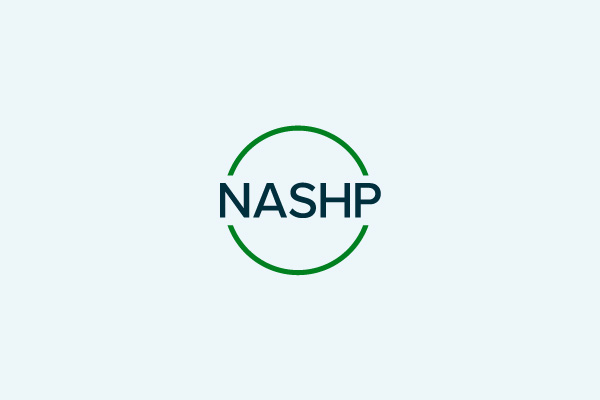This information was collected through a combination of state surveys and NASHP staff research. It offers a snapshot of how the state is defining, training, certifying, and paying for the CHW workforce — as well as how the state is developing cross-agency and state-to-local strategies to improve community health in partnership with CHWs.
This is a dynamic policy space, and states are continuing to develop new approaches. We will continue to make periodic updates to this page. Learn more about state CHW policies across the U.S.
State CHW Definition
Colorado uses the APHA definition of CHWs with the following addition: “‘Community health worker’ is meant to be an umbrella term for individuals who may go by many names, such as health promoters, community outreach workers, promotores de salud, health navigators, and patient navigators.”
Certification and Training
The Department of Public Health and Environment (CDPHE) maintains a voluntary registry of CHWs who have completed a CDPHE-recognized training program and passed a competency assessment. CDPHE works with a vendor to administer a CHW assessment that is required to become a credentialed CHW in the state.
Medicaid Reimbursement
Colorado does not reimburse for CHW services through the state Medicaid program. However, a new law was enacted during the 2023 legislative session that authorizes the Department of Health Care Policy and Financing (HCPF) to seek federal authorization to provide Medicaid reimbursement for CHW services.
HCPF does not specifically require the Regional Accountable Entities (RAEs), care coordinating entities contracted with Colorado’s Medicaid program, or other managed care entities to cover CHW services, nor does the department pay for CHW services under fee for service. But the RAEs and their contracted medical homes may use their administrative per member per month funding from Colorado’s Medicaid program to pay for CHW services. The department has created performance payments for improvements in outcomes for targeted conditions, such as diabetes and maternity, improvements that CHWs can support.
Other Funding or Financing Mechanisms
Information is unavailable.
Key Partnerships
The Colorado Department of Public Health and Environment’s Health Navigator Workforce Development Initiative has convened a diverse group of partners across Colorado to assess the current and future state of health navigation.
The Alliance of Colorado CHWs, Patient Navigators and Promotores de Salud is an active partner.
State CHW Legislation
SB23-002 was enacted in May 2023. It allows HCPF to seek federal authorization from the Centers for Medicare and Medicaid Services to provide Medicaid reimbursement for community health worker services.
State Resources
State Overviews
ACO – Accountable care organization
AHEC – Area Health Education Centers
APHA – American Public Health Association
APM – Alternative payment model
CBO – Community-based organization
CDC – Centers for Disease Control and Prevention
CDC CCR Funding – Community Health Workers for COVID Response and Resilient Communities Funding
CHR – Community health representative
CHW – Community health worker
CPT Codes – Current Procedural Terminology Codes
C3 Project – CHW Core Competency Project
FFS – Fee for services
HCSPCS Codes – Healthcare Common Procedure Coding System Codes
HRSA – Health Resources & Services Administration
MCO – Managed care organization
NACHW – National Association of Community Health Workers
SDOH – Social determinants of health
VBP – Value-based payment
State CHW Definition: This category indicates where states have a formal definition of a CHW. In some cases, where there is not a definition in statute, this category may draw information from provider manuals and state websites or reports.
Certification and Training: This category includes information about how CHWs are trained in the state, which entities provide training, whether or not the state runs or recognizes a CHW certification program, and information about the entities that administer existing certification programs.
Medicaid Reimbursement: This category includes information about state Medicaid strategies that provide enrollees access to CHW services. Entries indicate whether state Medicaid programs currently reimburse for CHW services or incorporate CHWs into alternative payment models under the authority of a state plan amendment (SPA), or where states have earmarked funds to support CHW services under the authority of an 1115 demonstration waiver. It also indicates where CHW services might be supported through managed care approaches (e.g., where MCOs are paying for CHW services using administrative dollars or where states are using managed care contracts to incentivize or require MCOs to cover CHW services).
Other Funding or Financing Mechanisms: This category includes information about other state funding or financing approaches that cover CHW services or CHW positions. It includes information about federal grant dollars for which the state is the grantee.
Key Partnerships: This category offers information about key partners outside state government, including state CHW associations and CHW training entities, and highlights formal cross-agency partnerships within the state that support alignment of funding and resources for the CHW workforce.
State CHW Legislation: This category highlights any state legislation relevant to the CHW workforce. This might include statutory language directing agencies to develop a Medicaid reimbursement approach, laws that established state CHW certification, or other relevant statutes.
State Resources: This category offers links to any key reports or resources that states elected to highlight as critical to CHW policy and partnership.



